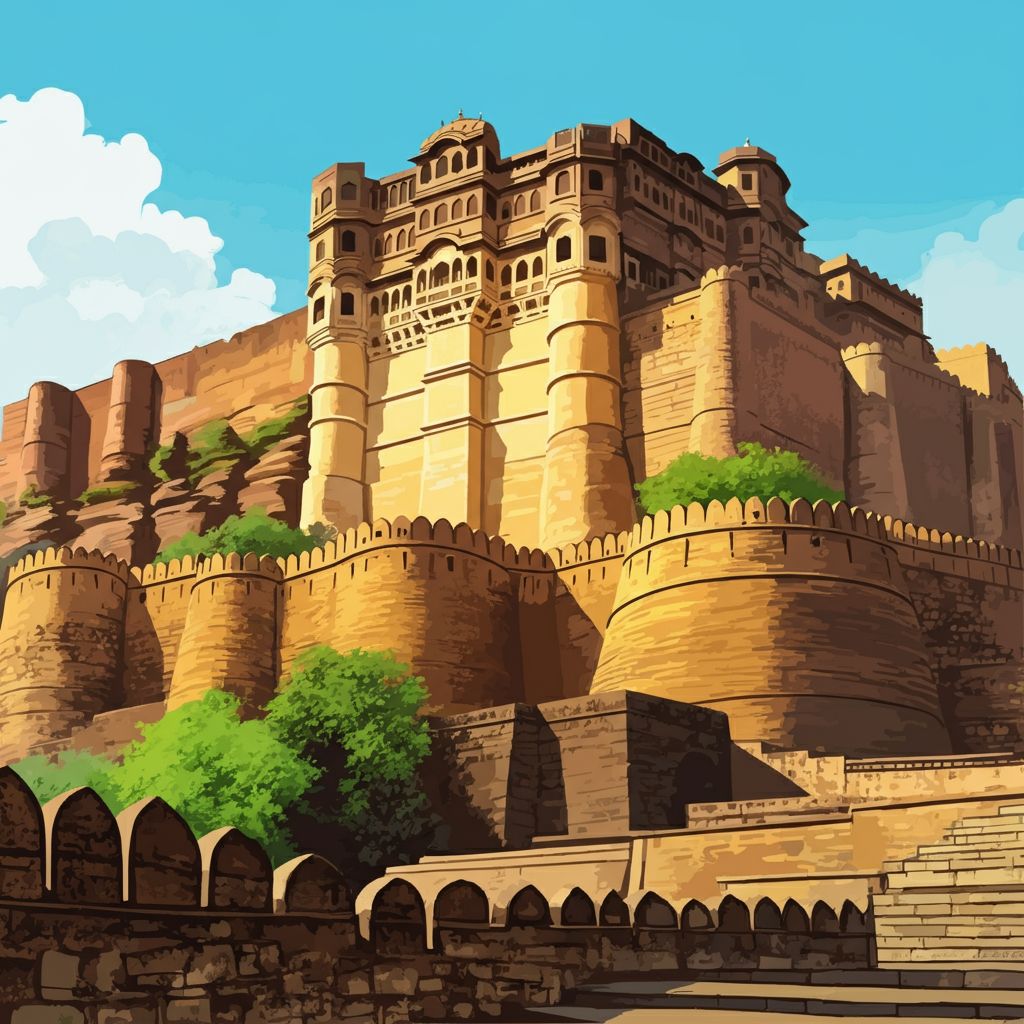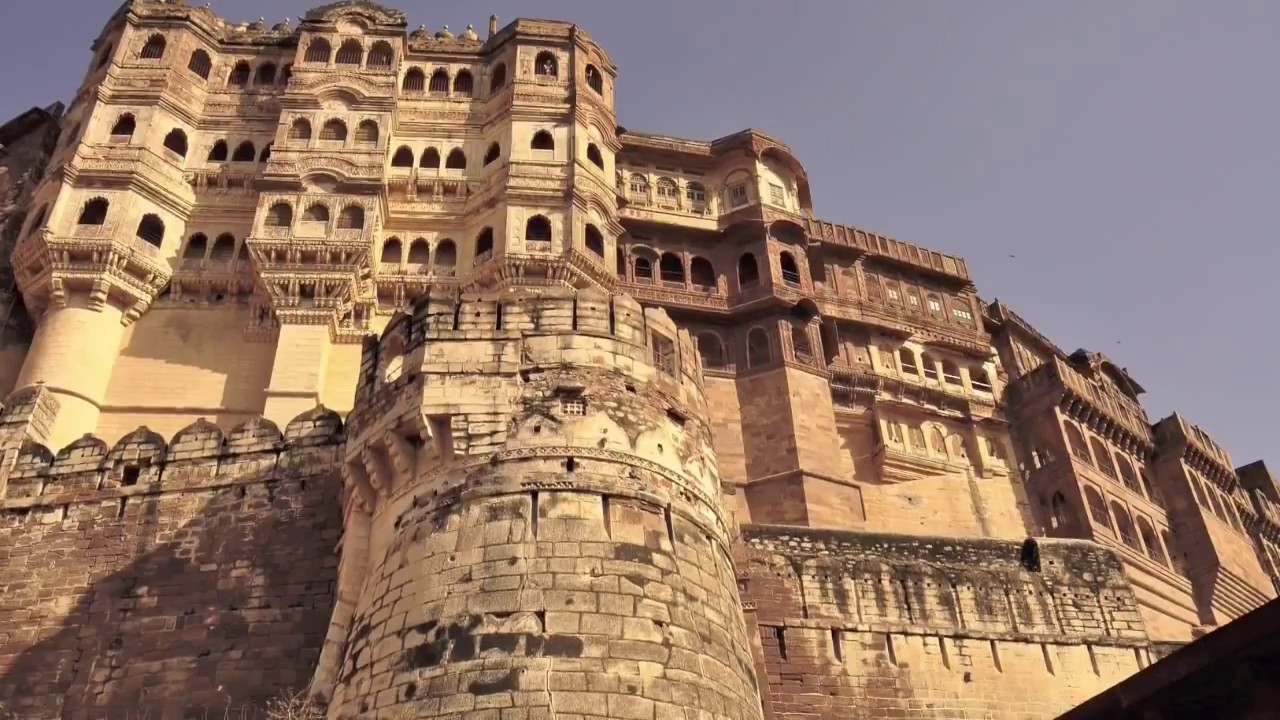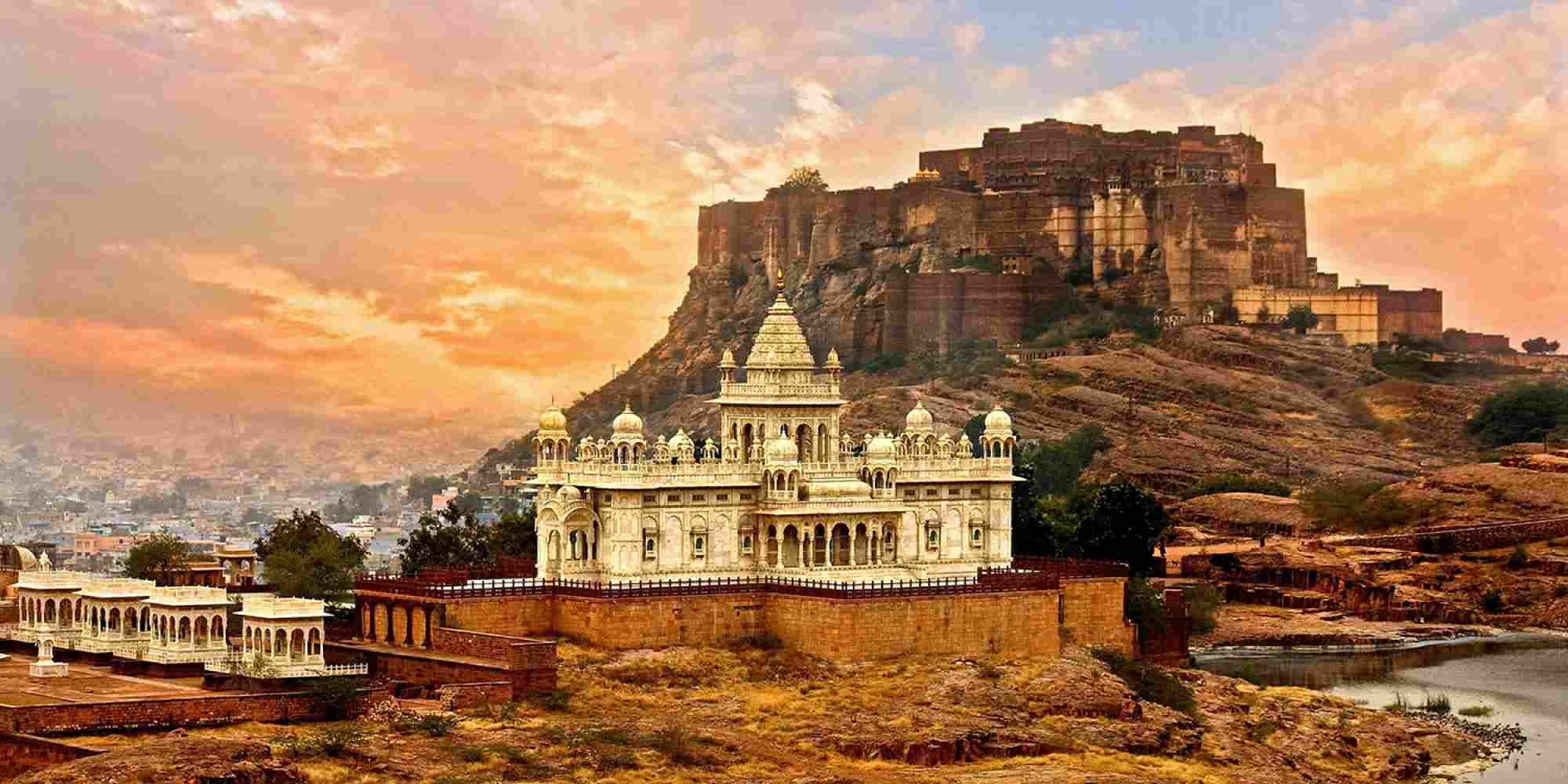🛡️ Rathore Dynasty of Marwar 🛡️
👑 Maharaja Jaswant Singh I (1638-1678 AD)
🌟 Coronation and Beginning of Reign:
- 📅 May 25, 1638 AD: Mughal Emperor Shah Jahan declared Jaswant Singh as the ruler of Marwar by presenting him with a khilat, jadaau majdhar, and a ceremonial tika.
- 🏹 He was awarded a mansab of 4000 Zat and 4000 Sawar.
- 🏰 The coronation took place in Agra.
- 👑 April 30, 1640 AD: Jaswant Singh assumed the throne of Jodhpur.
🌟 Titles and Recognition:
- 🏆 1655 AD: Shah Jahan conferred the title of ‘Maharaja’ upon Jaswant Singh.
⚔️ Significant Battles and Events:
- 🗡️ Battle of Dharmat (April 15, 1658 AD):
- 🏞️ Location: Ujjain, Madhya Pradesh.
- 👑 Jaswant Singh supported Dara Shikoh.
- 🛡️ Aurangzeb emerged victorious in the battle, but Jaswant Singh was honored.
- ⚔️ Battle of Khajwa (January 5, 1659 AD):
- 🏹 Jaswant Singh plundered the royal Mughal camp.
- 🌟 Aurangzeb emerged victorious in this battle.
- ⚔️ Battle of Deorai (March 14, 1659 AD):
- 🏔️ Location: Near Ajmer.
- 🔥 A battle between Aurangzeb and Dara Shikoh, where Aurangzeb emerged victorious.
- 🤝 The efforts of Jai Singh I of Amber helped reduce tensions between Jaswant Singh and Aurangzeb.
- Subedar of Gujarat:
- 📅 1659 AD: Maharaja Jaswant Singh was appointed as the Subedar of Gujarat.
- 🛡️ Appointment Against the Marathas:
- 🌟 1662 AD: Jaswant Singh was appointed to assist Shaista Khan against the Marathas.
- 🛡️ Kandahar Campaign (1673 AD):
- 🏞️ Jaswant Singh was appointed for the Kandahar campaign.
⚰️ Death and Aurangzeb’s Statement:
📅 November 28, 1678: Jaswant Singh passed away at a place called Jamrud in Afghanistan.
- 🔥 Upon his death, Aurangzeb said:
- “Today, the door of Kufr (heretical belief) has been broken.”
📚 Writing and Contributions:
- 📖 Jaswant Singh wrote books such as ‘Siddhant Bodh,’ ‘Anand Bilas,’ and ‘Bhasha Bhushan.’
🚩 Important Facts:
- 🏰 1679 AD: After the death of Jaswant Singh, Aurangzeb declared the Marwar state as Khalsa.
- 👑 Aurangzeb appointed Indras Singh as the ruler of Marwar.
- 🦁 From the royal family of Marwar, Amar Singh Rathore was famous in the 17th century as a courtier in Shah Jahan’s court.
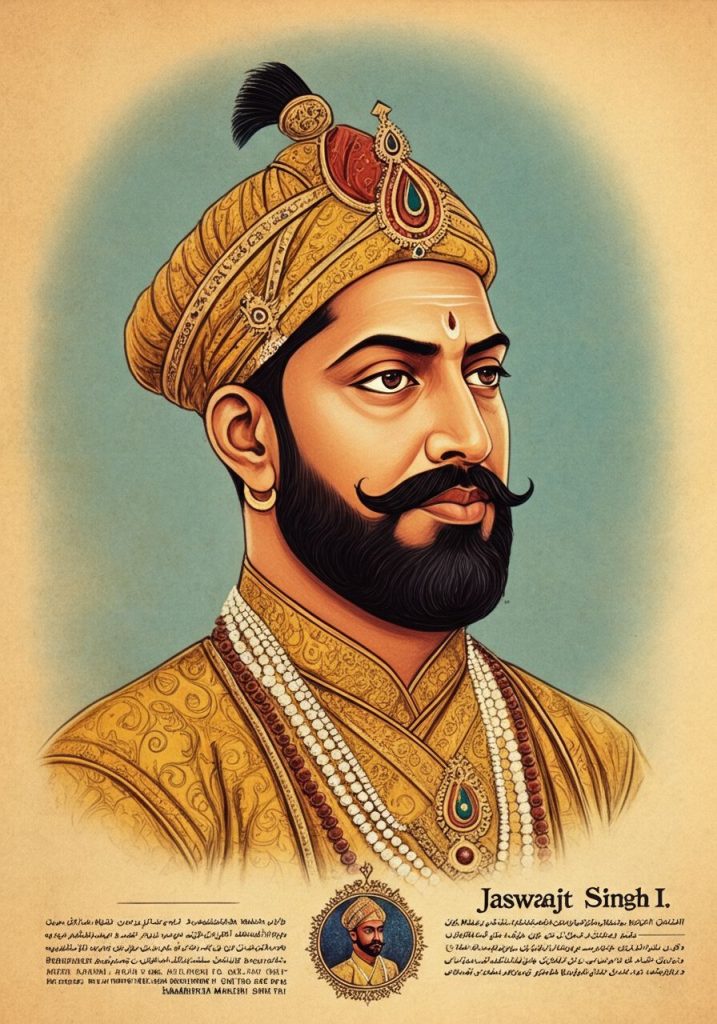
🦁 Ajit Singh (1678-1724 AD) & Durgadas Rathore:
Family and Childhood
- 🏹 Ajit Singh was the son of Jaswant Singh I.
- 🎭 In 1679, Goradhay disguised himself as a maidservant to protect Ajit Singh.
- 🛡️ Ajit Singh was entrusted to Mukunddas Kheeche, a Kalbeliya, who smuggled him out of Delhi and hid him at the Kalindri Temple in the Sirohi state.
- 🏡 Ajit Singh was raised in the home of a Brahmin named Jaydev.
- 🤝 Maharana Raj Singh Sisodia of Mewar helped him.
Political and Social Events
- 📜 Historian Gaurishankar Hirachand Ojha referred to Ajit Singh as ‘hard of hearing.’
- 💍 Ajit Singh married his daughter Indra Kumari to Farrukh Siyar.
Son and Controversy
- 🏹 Ajit Singh had two sons: Abhay Singh (elder) and Bakht Singh (younger).
- ⚔️ The younger son, Bakht Singh, killed Ajit Singh while he was asleep, which led to Bakht Singh being called ‘the second parricide of Marwar.’
Literature and Architecture
- 📚 Ajit Singh authored several works:
- 🛡️ Ajitcharitra, Gunasagar, Nirvan Doha, Durgapath Bhasha, Gaj Uddhar.
- 🏰 Contributions to Architecture:
- 🏞️ Jaswant Singh Ra Thada (Mandore).
- ⚔️ Fateh Mahal (Jodhpur).
- 🏯 Ghanshyamji Temple (Jodhpur).
Important Wars and Events
- ⚔️ January 25, 1680:
- 🌺 Aurangzeb defeated the joint forces of Mewar and Marwar at Debari (Udaipur).
🛡️ Leadership of Durga Das Rathore
- 🏆 Durga Das Rathore is referred to as ‘Chanakya of Marwar,’ ‘An Bindiya Moti,’ and ‘Ulysses of Rathores.’
- 👑 In 1707 AD, under the leadership of Durga Das Rathore, a prolonged struggle against the Mughals took place to crown Ajit Singh as the king.
- 🏰 In 1707 AD, Ajit Singh took control of Jodhpur.
- 🌟 After becoming king, Ajit Singh expelled Durga Das Rathore from the state.
- 🏔️ After his expulsion from Marwar, Durga Das was granted the jagir of Vijaypur by the Mewar ruler Amar Singh II and was later appointed as the governor of Rampura.
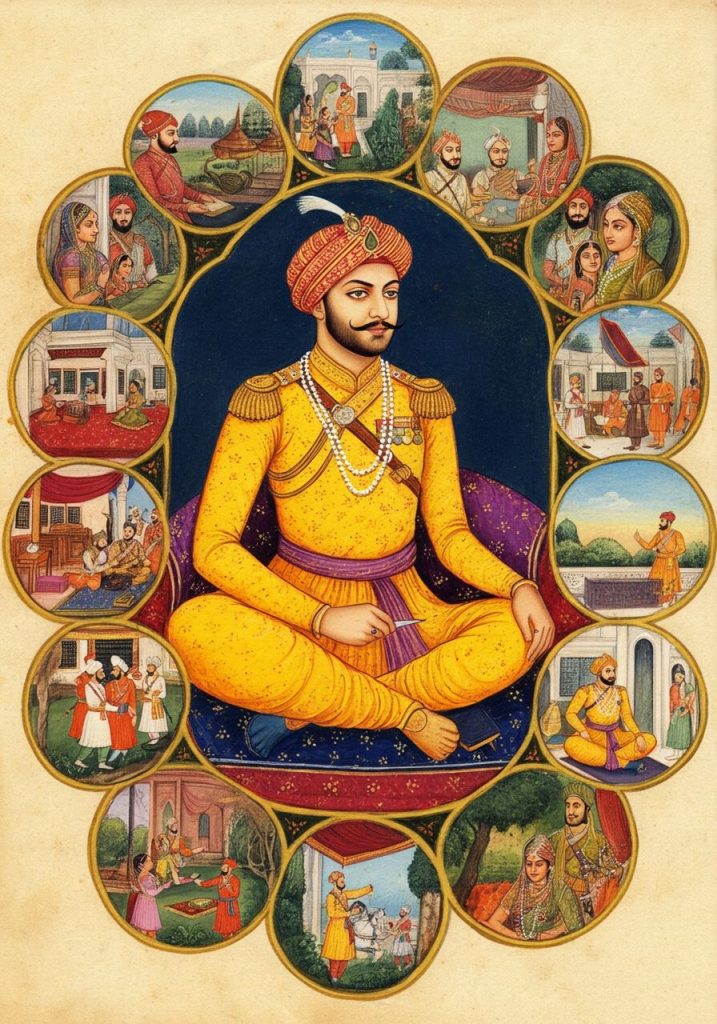
🌟 Title:
- 🛕 They are known as the ‘Monk King.’
- 🙏 Their royal guru was Ayas Devnath of the Gorakhnath tradition.
📚 Literature and Architecture:
- 🏰 They built the Mahamandir in Jodhpur, the main seat of the Nath tradition.
- 📖 They established the ‘Pustak Prakash’ library in the Jodhpur Fort.
- ✍️ Their court poet was Bankidas.
⚔️ Battle of Geengoli (1807):
🗡️ This battle was fought between Maharaja Man Singh of Jodhpur and Maharaja Jagat Singh II of Jaipur over Krishna Kumari.
- 🗺️ Location: Geengoli (Parbatsar, Didwana-Kuchaman).
- 🏆 Outcome: Victory of Maharaja Jagat Singh II of Jaipur.
🤝 Treaty:
- 📅 January 6, 1818: They signed a treaty with the East India Company.
🌸 Renunciation:
- 🕊️ After the treaty, Maharaja Man Singh renounced worldly life.
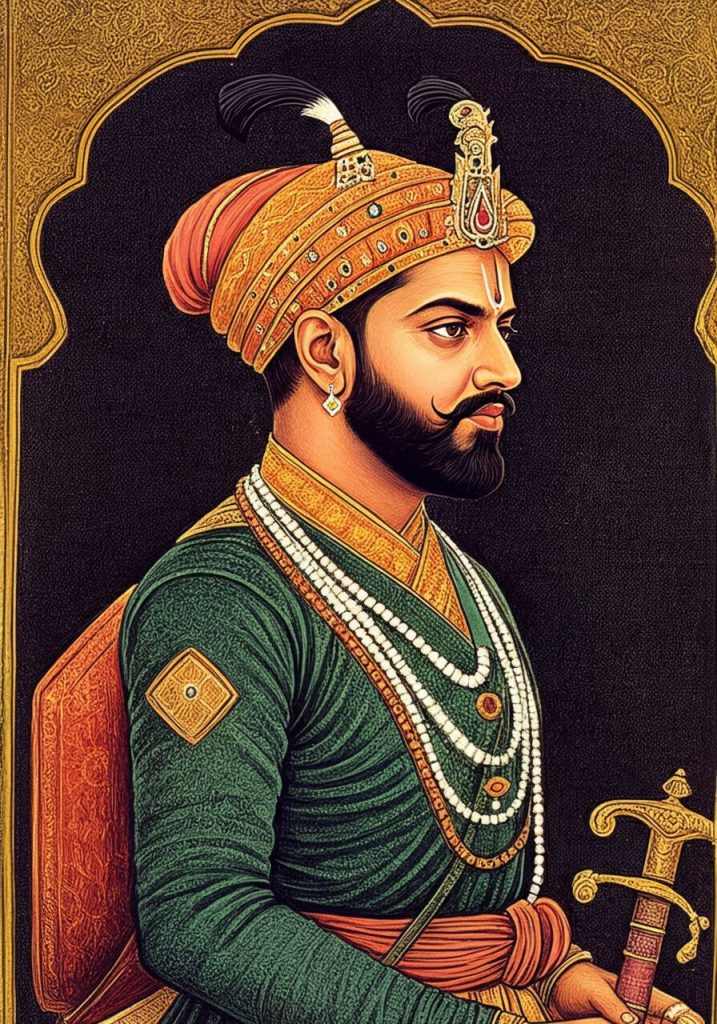
🛕 Maharaja Takht Singh (1843-73 AD)
🌟 Ascension to the Throne:
- 👑 As Maharaja Man Singh had no heirs, Takht Singh was adopted with the permission of the British government.
- 🎉 In December 1843, Takht Singh was coronated in Jodhpur.
- 🤝 On this occasion, the Political Agent, Lord Ludlow, was also present.
The suppression of the revolt of the Naths.
- As soon as Takhtsingh ascended the throne, he pacified the revolt of the Naths.
Role in the Revolt of 1857.
- 🤝 Takhtsingh helped the British.
- 🛡️ When the rebel soldiers from Erinpura cantonment reached Awa, Takhtsingh sent his army from Bithoda.
- ⚔️ 8th September, 1857: In the Battle of Bithoda, commanders Onadis Singh and Rajmal were killed.
Social Reforms
- ✋ Takhtsingh issued strict orders to stop the practice of child marriage in the Rajput community.
- 🪨 These orders were engraved on stones and displayed at all the forts of Marwar.
🧂 Salt Treaty (1870):
- 🤝 The British made a salt treaty with the Jodhpur state.
- 🏞️ Under this, Jodhpur leased the salt production centers of Nawa and Nokk to the British
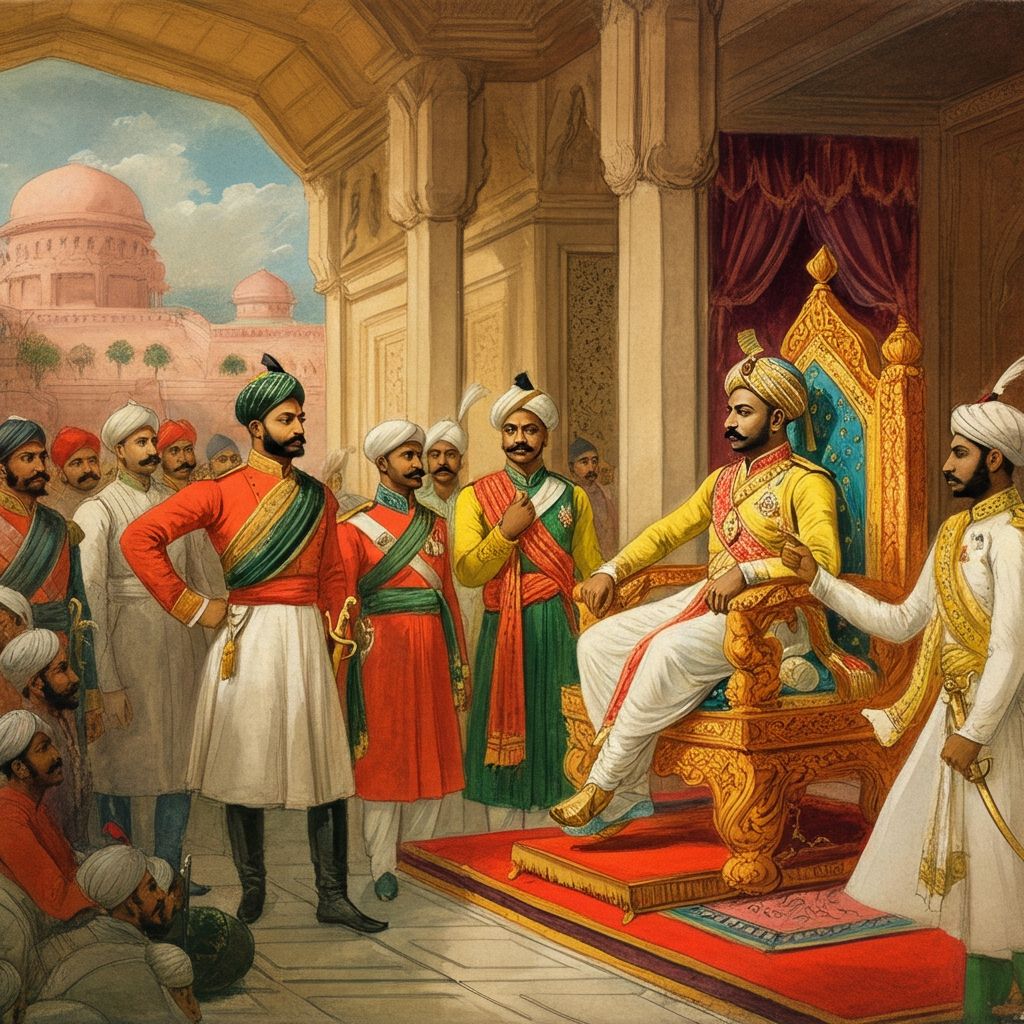
🌍 Maharaja Jaswant Singh II (1873-95 AD)
- 🌟 Support towards the British:
- 🤝 Maharaja Jaswant Singh II was a complete supporter of the British.
- 🎉 1875 AD: He participated in the Calcutta Durbar.
- 🏰 1877 AD: He attended the Delhi Durbar.
- 🧂 1879 AD: He signed another salt agreement with the British.
- 🌟 1887 AD: He sent his Prime Minister, Sir Pratap Singh, to London to attend Queen Victoria’s Golden Jubilee celebrations (50 years).
📊 Administrative Reforms and Social Work:
- 🧾 1881 AD: The first census of the Jodhpur state was conducted.
- 🏛️ 1884 AD: The municipality was established in Jodhpur.
- 🌸 1885 AD: A ban was imposed on child marriage in the state.
📜 Contribution of the Arya Samaj and Maharshi Dayanand Saraswati:
- ✨ 1883 AD: Maharshi Dayanand Saraswati visited Jodhpur at the invitation of Prime Minister Sir Pratap Singh.
- 📖 The establishment of Arya Samaj took place during the reign of Maharaja Jaswant Singh II.
- ⚡ Maharshi Dayanand Saraswati reprimanded the Maharaja for his indulgence and the incident involving the carrying of Nanhi Jan’s palanquin.
- 🐍 The Maharaja’s lover, Nanhi Jan, became enraged and, in collusion with Gaud Mishra (the Maharaja’s cook), poisoned Swamiji’s milk.
- 🏛️ Swamiji traveled to Ajmer and passed away on 30th October, 1883 AD.
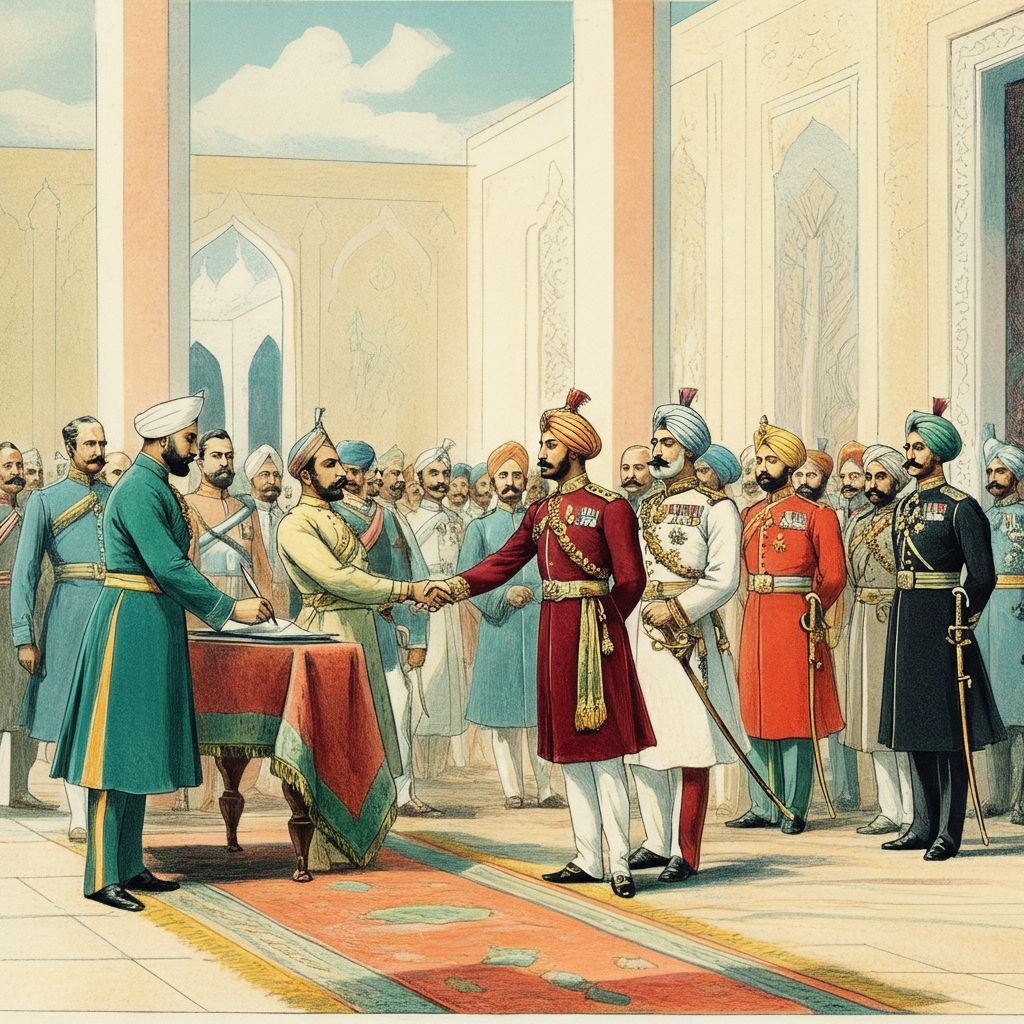
🏇 Maharaja Sardar Singh (1895-1911 AD)
- 🌍 Polo and Achievements:
- 🏇 Jodhpur was referred to as the home of polo during his reign.
- 🏆 Sardar Singh won the Polo Challenge Cup in Pune.
- ⚔️ Role in the Boxer Rebellion in China:
- 🛡️ 1899-1901 AD: The Marwari army was sent to assist the British.
- 🏅 As a result of this service, the honor of writing “China 1900” on the Marwar flag was awarded.
- 📜 Reforms and Institutions:
- 🛠️ The practice of taking a quarter share of stolen goods was abolished.
- 🎗️ 1910 AD: The Edward Relief Fund was established.
- 📖 The establishment of the Intellectual Research Center (for the development of Dingle literature).
🏞️ Maharaja Sumer Singh (1911-18 AD)
- Royal Ceremonies and Durbar:
- 👑 1911 AD: Participated in the coronation ceremony of George V in London.
- 🏛️ 1911 AD: Also attended the Delhi Durbar.
- ⚔️ Role in World War I:
- 🛡️ Assisted the British by going to the battlefield with Sir Pratap Singh and the Jodhpur Lancers.
- 🐪 During his reign, the Sumer Camel Corps was established.
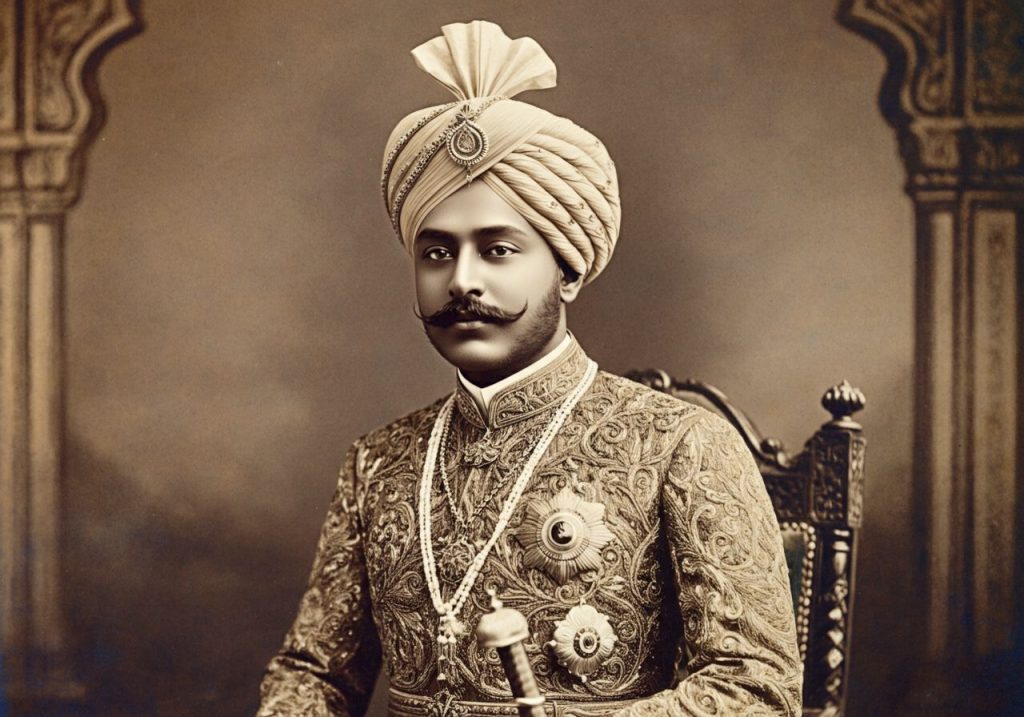
🏰 Maharaja Ummed Singh (1918-47 AD)
- 🌍 Administrative and Social Contributions:
- 🏛️ 8th February, 1921 AD: Became a member of the Narendra Mandal formed in Delhi.
- 🏰 18th November, 1929 AD: Laid the foundation of Umaid Bhawan Palace on Chheetar Hill.
- 📝 Appointed Jayanarayan Vyas as the representative of Marwar in the Constituent Assembly.
- ⚰️ 9th June, 1947 AD: Passed away in Mount Abu.
✍️ Maharaja Hanuwant Singh (1947-49 AD)
- 🌍 Independence and Merger of Jodhpur:
- 🛡️ Maharaja Hanwant Singh was the ruler of Jodhpur at the time of India’s independence.
- ✍️ He is known as the last ruler of the Rathore dynasty.
- 🤝 He attempted to merge Jodhpur with Pakistan, in collaboration with Mohammad Ali Jinnah.
- 🏛️ In 1949 AD, through the efforts of Sardar Patel and Lord Mountbatten, Jodhpur was merged into the larger state of Rajasthan.
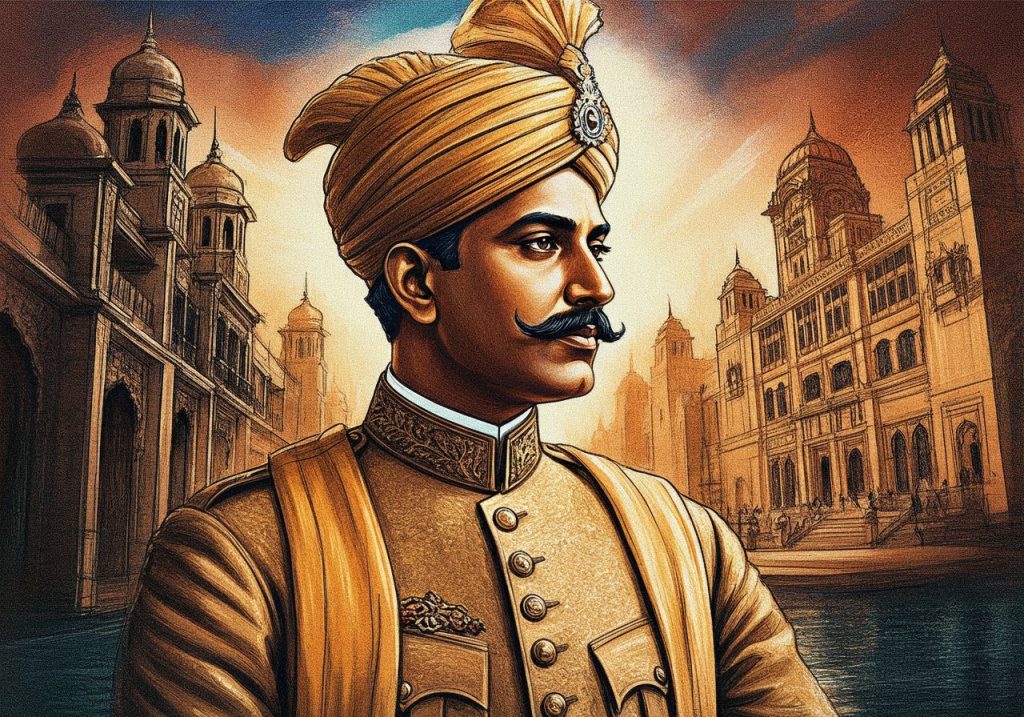
Important Wars and Events:
Pahoba Battle (Saheba Battle)
- Date: 26th February, 1542 AD
- Location: Pahoba, near Pali
- Rivals: Rao Maldev vs. Rao Jaitsi (Bikaner)
- Background:
Rao Jaitsi attempted to curb the growing influence of Rao Maldev. This battle was fought for regional dominance and political supremacy. - Outcome:
Rao Maldev’s army defeated Rao Jaitsi.
Giri Sumel Battle
- Date: 5th January, 1544 AD
Location: Jaitaran, Beawar (Pali)
Rivals: Rao Maldev vs. Sher Shah Suri - Background:
Sher Shah Suri attempted to gain control over the vast region of Marwar. The bravery of Rao Maldev’s forces made Sher Shah uneasy. - Incident:
Sher Shah allied with feudal lord Veeramdev and Rao Kalyanmal of Bikaner. He planned to win the battle using deception. - Outcome:
Sher Shah Suri barely managed to secure victory. - Quote: “For a handful of millet, I would have lost the throne of Hindustan.”
The battle of Dharmat
- Date: 15 April, 1658 CE
- Location: Dharmat, Ujjain (Madhya Pradesh)
- Opponents: Maharaja Jaswant Singh vs Aurangzeb and Murad Bakhsh
- Background:
- During the struggle for succession to Shah Jahan, Dara Shikoh sought support from Jaswant Singh.
- Event:
- Jaswant Singh, with his army, supported Dara Shikoh.
- Aurangzeb and Murad Bakhsh attacked with a combined army.
- Outcome:
- Aurangzeb emerged victorious, but Jaswant Singh’s bravery remained commendable.
The Battle of Khajua.
- Date: 5 January, 1659 CE
- Location: Khajua, Uttar Pradesh
- Opponents: Maharaja Jaswant Singh vs Aurangzeb
- Background:
- The struggle between Dara Shikoh and Aurangzeb was ongoing.
- Event:
- Jaswant Singh attacked Aurangzeb’s camp and looted the royal camp.
- Outcome:
- Aurangzeb emerged victorious in the battle.
The Battle of Daurai.
- Date: 14 March, 1659 CE
- Location: Daurai, near Ajmer
- Opponents: Dara Shikoh vs Aurangzeb
- Background:
- This was a decisive battle for the succession of Shah Jahan.
- Event:
- A direct conflict took place between Dara Shikoh and Aurangzeb.
- Jaswant Singh maintained neutrality in this battle.
- Outcome:
- Aurangzeb defeated Dara Shikoh.
The Battle of Gingoli (1807)
- Date: 1807 CE
- Location: Gingoli (Parbatsar, Didwana-Kuchaman)
- Key Figures: Maharaja Man Singh vs Maharaja Jagat Singh II of Jaipur
- Cause: Dispute over the marriage of Krishna Kumari
- Outcome: Victory for Maharaja Jagat Singh II of Jaipur
- Significance: This battle highlighted the internal conflicts among the Rajput states.
The relationship of Marwar with the Mughal rulers.
Marriage and Political Alliances 🤝💍
- Rao Udaysingh (1583-95):
The first ruler of Marwar to accept Mughal sovereignty.
His daughter, Manbai, married Salim (Jahangir), from whom Shah Jahan was born. - Rana Jaswantsingh (1638-78):
Shah Jahan bestowed upon him the title of “Maharaja.”
He supported Dara Shikoh, leading to a conflict with Aurangzeb.
War and Conflict ⚔️🔥
- Rao Chandrasen (1562-81):
Refused to accept Akbar’s sovereignty and fought throughout his life.
In 1572, Akbar handed over the administration of Jodhpur to Rai Singh of Bikaner. - Battle of Dharmat (1658):
Maharaja Jaswantsingh supported Dara Shikoh, but Aurangzeb emerged victorious. - Battle of Khajua (1659):
Jaswantsingh attacked the royal camp but was defeated by Aurangzeb.
Administrative Relations 🛡️📜
- Subedar of Gujarat (1659):
Jaswantsingh was appointed as the Subedar of Gujarat by the Mughals. - Kandahar Campaign (1673):
Jaswantsingh led the Mughal army in the campaign for Kandahar.
Cultural and Social Impact 🌟📖
- The alliance with the Mughals elevated Marwar in cultural and architectural fields.
- The development of literature and arts was inspired by Mughal culture.
Ajit Singh and Rebellion against the Mughals 🦁🔥
- Rana Ajitsingh (1678-1724):
- After a long struggle with Aurangzeb, he liberated Marwar.
- His daughter married the Mughal Emperor Farrukh siyar, but he maintained a firm stance against the Mughals.
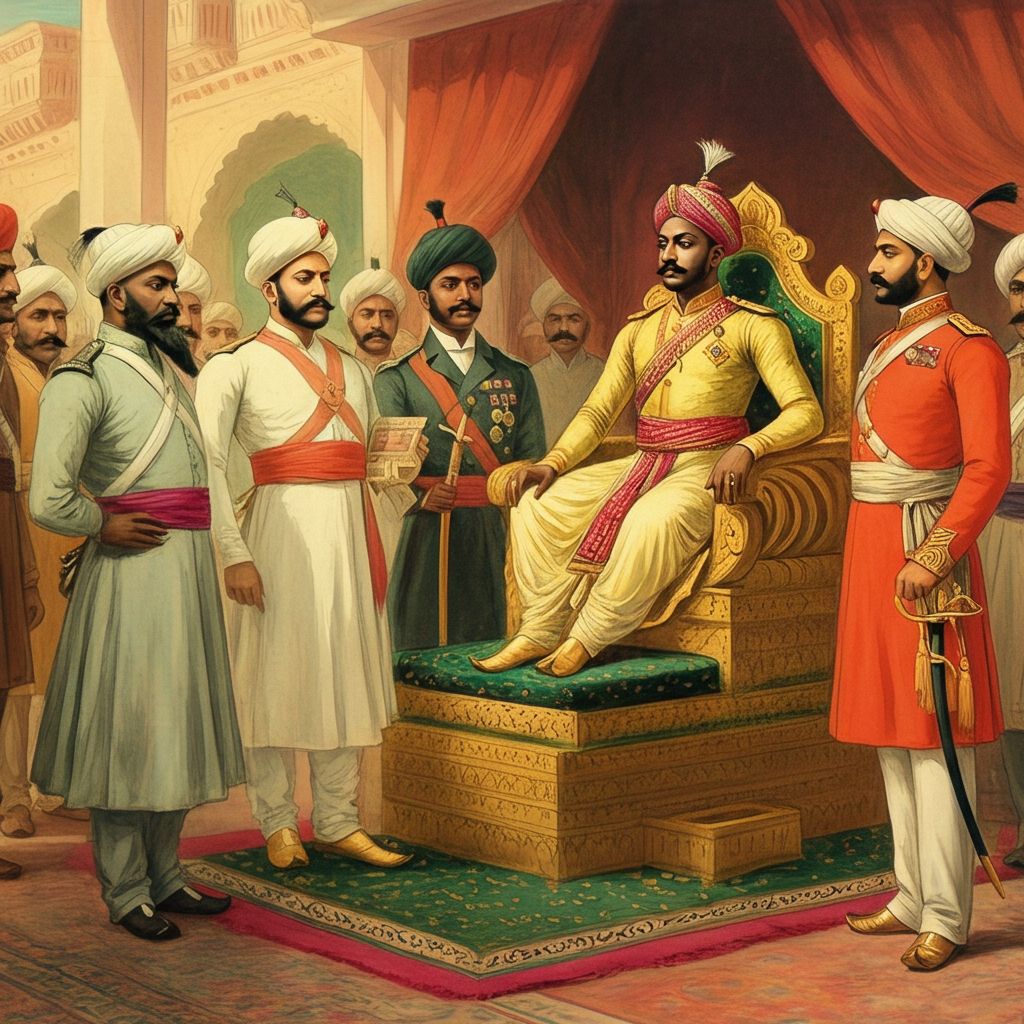
🏯 Major Constructions and Architecture
Mehrangarh Fort and Other Forts
Mehrangarh Fort:
- Location: Jodhpur
- Construction: Built by Rao Jodha in 1459 AD on the Chidiya Tunk hill.
- Feature: One of the largest and strongest forts in Rajasthan.
- Other Forts:
- Sivana Fort: Capital during times of crisis.
- Mandore Fort: Ancient capital.
Sojat Fort, Pokaran Fort, and Malkot Fort
- Sojat Fort (Pali):
- Construction: Built by Rao Maldev.
- Feature: Strategically important.
- Pokaran Fort (Jaisalmer):
- Construction: Built to protect trade routes.
- Feature: Beautiful architecture and strong defensive walls.
- Malkot Fort (Merta, Nagaur):
- Construction: Built by Rao Maldev.
- Feature: Center for the activities of the dynastic branch.
Umaid Bhawan Palace
- Location: Jodhpur
- Construction: The foundation was laid by Maharaja Umaid Singh in 1929 on Chhitar Hill.
- Feature:
- An excellent example of modern architecture.
- Currently, a part of the palace is used as a hotel and museum.
- The only royal palace built under the famine relief scheme.
